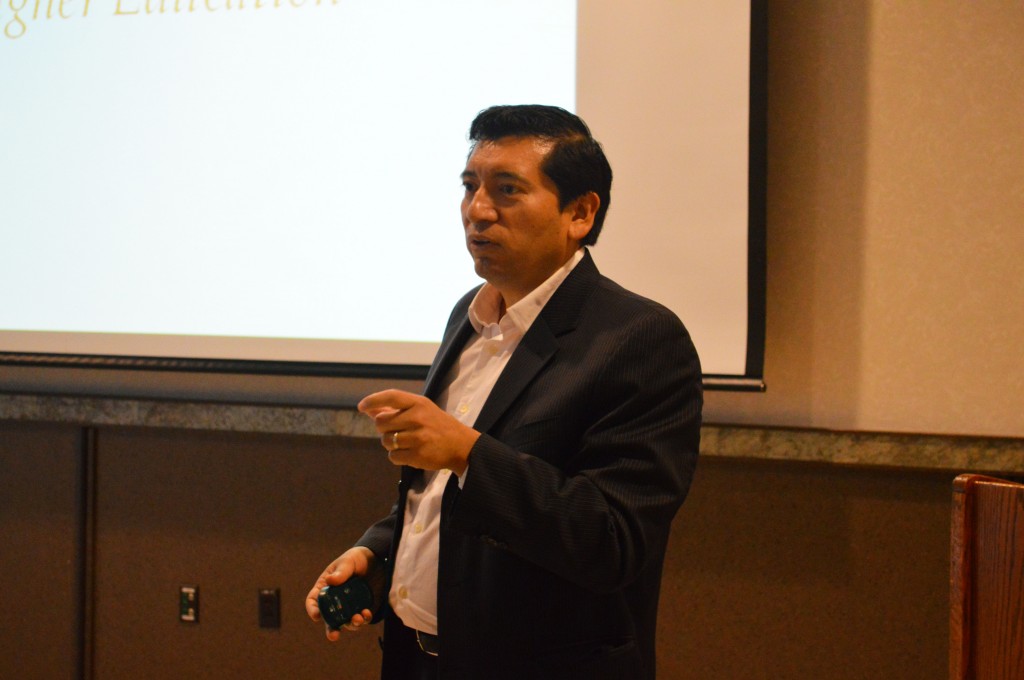
The third and final ombudsman candidate, Mauricio Ramos, spoke to campus on Tuesday to conclude the ombudsman presentation process.
Ramos graduated from the Pepperdine University School of Law, and currently works for Sandia National Laboratories in Livermore, California. He has worked in dispute resolution for 19 years, five of them as ombudsman at University of California, Los Angeles (UCLA), where he said he guided students and staff by presenting them with options for conflict resolution and community support.
The first candidate to present for this position, Bernard Anderson, is the current ombudsman for Kennesaw State University. Bathabile Mthombeni, the second candidate, previously held the position of associate ombudsman for Columbia University.
The talk followed the same format as the first two candidates’, where Ramos was asked to speak about the ombudsman’s view for the “University Roadmap to Premier.”
“I like to tell people to think of me as a navigator,” Ramos said. “I help people go from where they’re at with conflict to where they could be with conflict, and I help them manage that situation.”
In his speech, Ramos said that if he were chosen for the position, one of his immediate goals would be to increase student and faulty awareness of the services the ombudsman’s office has to offer.
“We’re always constantly getting new students every semester, so I plan to connect with students and staff by doing everything from getting a new ombudsman table at the Union, to going to Residential Life and connecting with them,” Ramos said.
When Anderson spoke, he said his focus would be educating campus on conflict resolution, and aiming to improve connections within departments. Mthombeni said that the most important part of the job was offering students impartiality and complete confidentiality.
Timothy Faughnan, the chief of police for the University Police Department, said he joined the search committee because the ombudsman’s office is a very important aspect of the University. According to him, its commitment to impartiality and confidentiality is vital to helping people navigate problems.
“In my line of work, we deal with people in crisis and conflict,” Faughnan said. “Over the years I have referred people to the ombudsman office, because they can help the parties [with] mediation and finding a solution.”
According to Craig Babcock, a senior majoring in integrative neuroscience, the presentation was important in helping him learn more about the candidates.
“I really liked this candidate so far, and I think he has an interesting background,” Babcock said. “I think he already fits in on campus.”
The search committee plans to announce the next ombudsman before the start of the spring 2015 semester.


